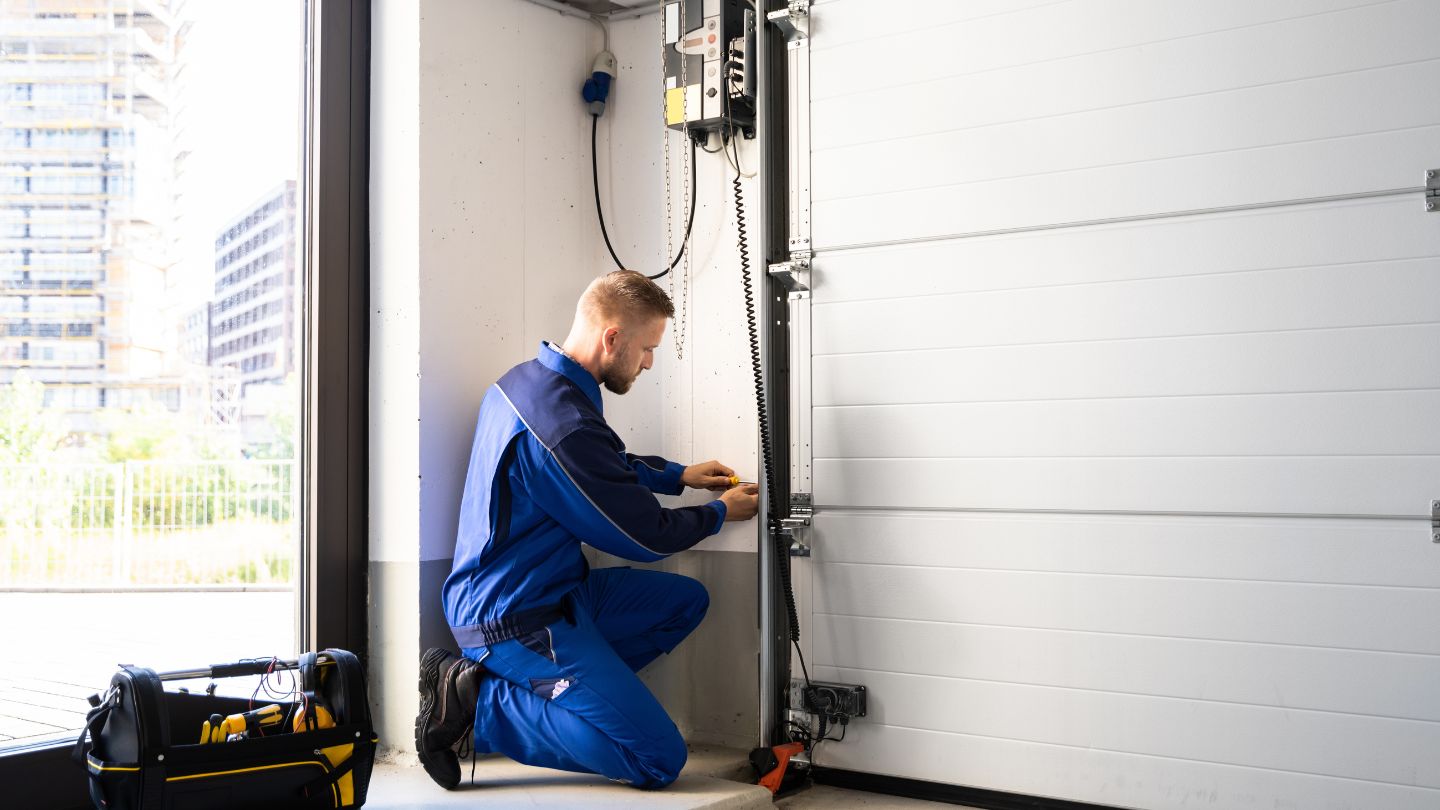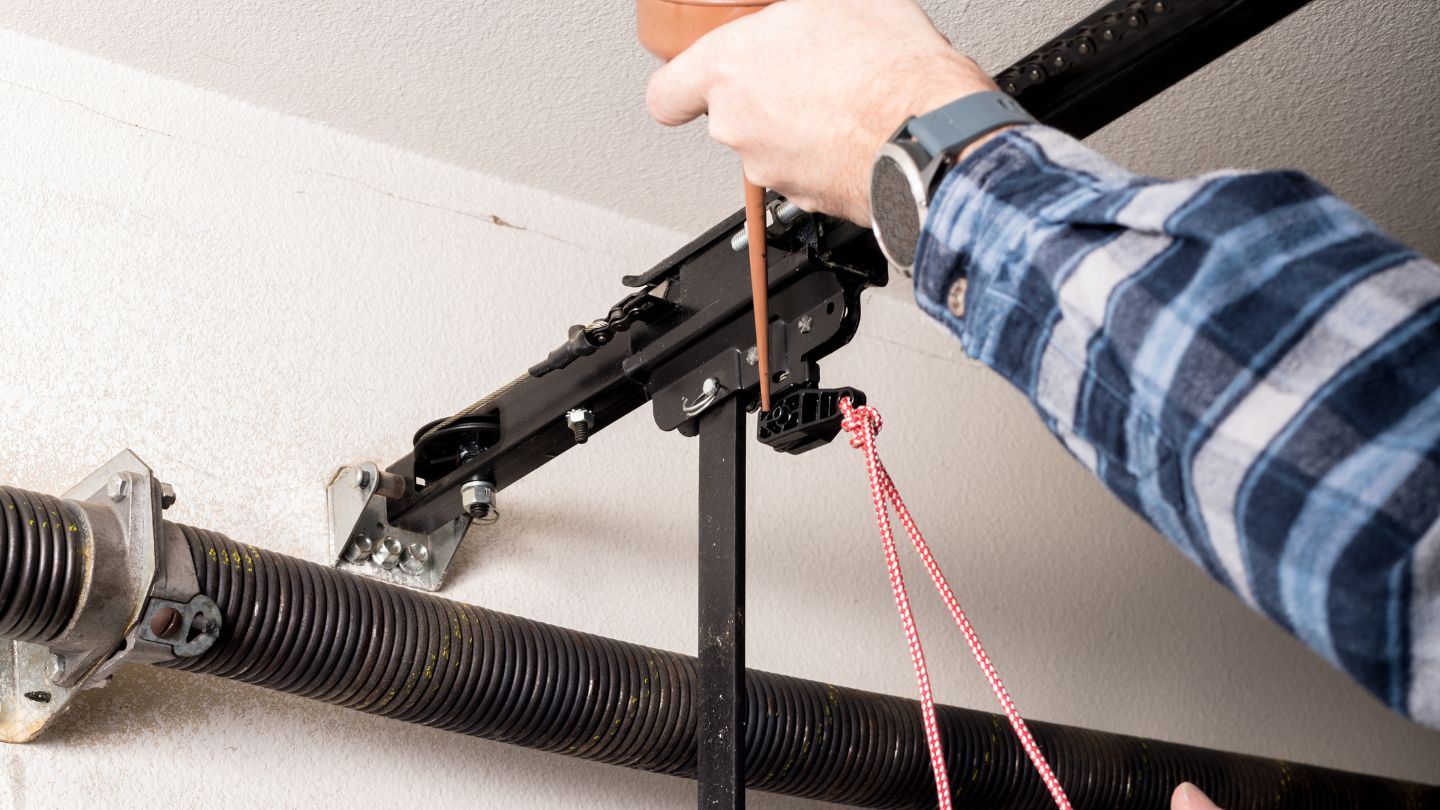
How often should I have my garage door inspected? Generally, a yearly inspection is recommended to keep everything running smoothly. This blog will explain why regular inspections are important and what you should consider to maintain a safe and functional garage door.
Regular inspections are key to keeping your entire garage door system functional and safe. Typically, a yearly inspection suffices to ensure all components are in good working order and to address minor issues early. The frequency, however, can depend on how often you use the door and its importance in your daily routine.
If your garage door is the primary entrance or is used multiple times daily, consider an inspection every six months. For doors used mainly for storage and opened less frequently, an inspection every two years might be sufficient. Regular maintenance practices similar to those used for entry and patio doors can also help extend the life and efficiency of your garage door system.
More frequent inspections may be needed in extreme weather or after extensive use. Understanding seasonal effects through winterizing your garage door can help reduce wear and ensure smooth performance year-round. If your garage door hasn’t been serviced in over 3,000 cycles or faces harsh conditions, an inspection is necessary to avoid failures. Adjust the frequency based on use and environment, from every six months to every two years.
Inspections help catch early signs of wear, ensuring reliable operation. Scheduling regular inspections and annual inspections can prevent minor issues from becoming expensive repairs, extend your garage door’s lifespan, and maintain home safety and security while avoiding premature wear.
Identifying when your garage door needs an inspection is crucial to avoiding breakdowns and costly repairs. Excessive noise, such as grinding or screeching, often signals unusual noises with the tracks or mechanical parts and shouldn’t be ignored. Recognizing why your garage door makes a loud noise can help you understand early warning signs that an inspection is overdue.
A slow-to-respond garage door suggests serious problems with the opener or internal components. Uneven operation may indicate balance problems or other mechanical issues needing immediate attention.
Misaligned or worn tracks can severely impact your garage door’s operation. If the door doesn’t move smoothly or seems off-track, a professional inspection is necessary.
Monitoring these warning signs helps maintain a functional garage door. Promptly addressing noises, slow operation, and misaligned tracks ensures safety and efficiency. Understanding how often to lubricate your garage door can also help reduce friction, minimize wear, and keep your door operating smoothly. Regular inspections based on these indicators prevent potential problems and keep your door in top shape.

Regular inspections offer more than just functional benefits. Enhanced safety is a primary advantage, preventing accidents from worn or malfunctioning parts like broken springs or faulty safety sensors, thus protecting your family and pets.
Cost savings are another significant benefit. Routine maintenance and inspections catch minor issues early, preventing costly repairs and extending the lifespan of your garage door system through preventive maintenance and annual maintenance, helping you save money.
Inspections also enhance your garage doors’ performance. A well-maintained door operates smoothly and efficiently, reducing wear on the opener and other parts, thereby improving reliability and ensuring quiet operation.
Additionally, regular maintenance can boost your home’s exterior energy efficiency. Ensuring weather stripping and seals are intact prevents drafts and maintains a stable garage temperature, leading to lower energy bills and a more comfortable environment. Keeping your system sealed properly and exploring the ways to weatherproof a garage door can make a significant difference in maintaining comfort and energy efficiency.
In summary, regular inspections offer numerous benefits, including enhanced safety, cost savings, better performance, and improved energy efficiency. Prioritizing routine maintenance ensures a reliable, long-lasting garage door.

A thorough regular inspection process covers various electrical components and all the components to ensure they are in good working order and to identify any necessary repairs and service. It typically starts with a visual check of all visible parts to identify any obvious issues needing immediate attention that can be repaired.
Springs are a key component checked during inspections. Both torsion springs and extension springs, under high tension, are inspected for rust, damage, or wear. Routine tension checks prevent breakage, which can cause significant structural damage and safety hazards.
Cables and tracks are also crucial:
Safety features like auto-reverse mechanisms and photo eye sensors are tested to ensure proper function and prevent accidents. The garage door openers and accessories are also checked for unusual sounds and responsiveness, including the overall effectiveness of safety systems.
To maintain proper door function and insulation:
Regular inspections of your garage door are more than just a good idea; they’re an essential part of maintaining safety, performance, and longevity. By scheduling inspections at least once a year, and more often if your door sees heavy use or extreme conditions, you catch potential issues before they escalate into costly repairs or safety hazards. Consistent care also helps keep the door running smoothly, protects your investment, and ensures your garage remains reliable and efficient.
When you’re ready to make inspection and maintenance easy, trust our team at Dayton Door Sales to deliver top-tier garage door service in Springboro. We also provide top-tier garage door service in Kettering and Beavercreek. Let us assess your system, recommend any needed adjustments or repairs, and keep your door operating safely and smoothly, so you can relax knowing it’s in dependable hands.
It is recommended to inspect your garage door at least once a year, and every six months if it serves as your primary entrance. Regular inspections help ensure optimal performance and safety.
If your garage door produces unusual noises, operates slowly, or has misaligned tracks, it is advisable to schedule an inspection. These signs indicate potential issues that require professional attention.
A comprehensive garage door inspection includes checking the springs, cables, tracks, rollers, hinges, sensors, and the garage door opener, as well as assessing the weather stripping and balance of the door. Ensuring these components are in proper working condition is essential for safety and functionality.
Neglecting regular inspections can lead to premature wear, unexpected breakdowns, and costly repairs. Small issues like frayed cables or unbalanced springs can worsen over time, potentially causing safety hazards or complete system failure. Regular professional checks help prevent these problems and extend the life of your garage door.